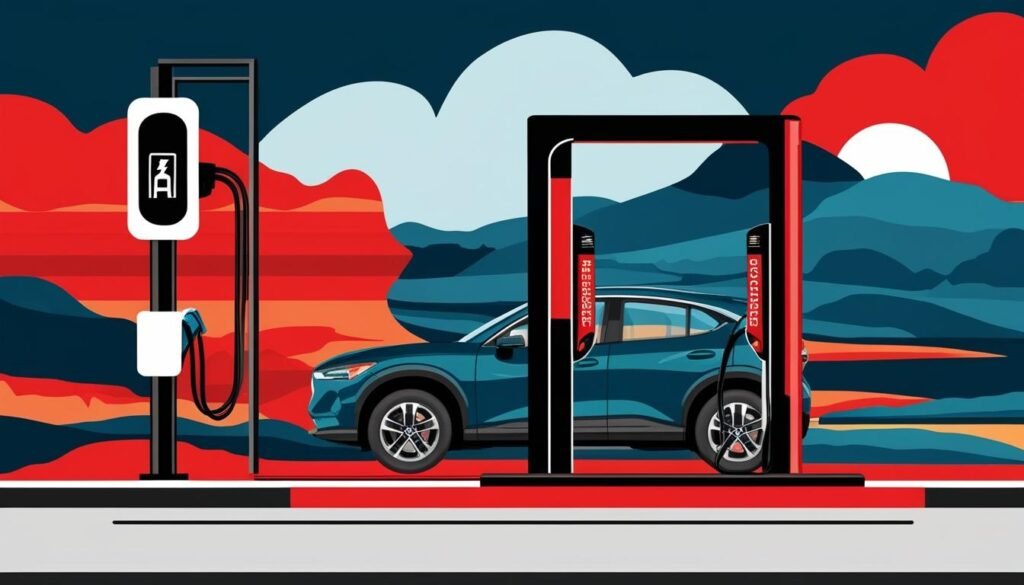A significant policy dialogue in Lusaka has brought together African nations to develop a roadmap for the automotive and electric mobility sectors, emphasising collaboration and strategic growth.
On Thursday, December 12, 2024, a high-level policy dialogue was held in Lusaka, Zambia, centred on the development of regional automotive and electric mobility value chains. Organised by the United Nations Economic Commission for Africa (ECA), this significant meeting brought together representatives from Morocco, the Democratic Republic of Congo (DRC), and Zambia. These nations reached a consensus on the framework for a joint roadmap aimed at fostering regional collaboration within the automotive sector.
The dialogue also saw participation from senior officials and private sector stakeholders from Botswana, Lesotho, Malawi, Namibia, and Zimbabwe. Together, they explored opportunities for enhancing automotive component production and established strategies to deepen their involvement in regional automotive value chains.
The primary goal of the meeting was to assess and identify key strategic priorities necessary for the advancement of regional value chains (RVCs) specifically in the automotive and electric mobility sectors. The discussions focused on evaluating potential partnerships while refining existing regulatory frameworks to create a conducive environment for development.
At the conclusion of the meeting, participants acknowledged the importance of aligning the new partnership framework with national public policies and sectoral plans to reflect the development priorities of each country involved. They also suggested signing a memorandum of understanding in 2025 and incorporating Morocco into the Zambia-DRC Special Economic Zone. The ECA committed to supporting these initiatives by finalising the roadmap and the corresponding implementation plan, as well as building capacity among small and medium-sized enterprises (SMEs) in the automotive sector.
Adam Elhiraika, Director of the ECA Office for North Africa, commented on the expected growth of the African automotive industry, stating, “The African automotive industry is expected to grow by 40%, reaching $42.06 billion by 2027. At the same time, the global shift to electric mobility presents transformative opportunities, with the global electric vehicle market expected to reach $46 trillion by 2050.” He highlighted the role of the African Continental Free Trade Area (AfCFTA) in facilitating this growth.
A forthcoming study from the ECA underscores how the removal of tariff barriers under the AfCFTA could significantly boost intra-African trade. Projections indicate a potential trade increase of nearly 85% for vehicles and transportation equipment, 46% for transport services, and 28% for energy and mining products by 2045.
Eunice Kamwendo, Director of the ECA Office for Southern Africa, noted the necessity of identifying countries capable of supplying competitive intermediate components while advocating for investment-friendly policies to foster a robust automotive sector. She pointed out ongoing challenges, stating, “Today, challenges remain in terms of policy frameworks, harmonisation, and standards for the formulation of CVRs in the automotive sector, particularly in Southern Africa.”
Zambian Minister of Commerce, Industry and Trade, Chipoka Mulenga, articulated the country’s commitment to electric vehicles, stating, “Our government has waived all taxes on electric vehicles except VAT. We have also eliminated VAT on locally produced electric vehicles.” He further emphasised that 50% of the government’s vehicle fleet is projected to consist of electric vehicles.
The dialogue followed a three-day workshop focused on the development of the regional electric mobility value chain involving participants from eight countries, including government representatives, industry experts, and development organisation officials. The discussions covered essential topics such as financing opportunities, the creation of research and development ecosystems, and the importance of collaboration between public and private sectors.
Predictions indicate that automobile demand in Africa could hit 10 million vehicles annually by 2030, with the electric vehicle market potentially reaching $46 trillion by 2050. Africa’s rich reserves of essential minerals such as cobalt, lithium, and copper position it strategically to participate in the growing electric vehicle market, reinforcing sustainable development and supporting environmental goals.
The establishment of thriving automotive and electric mobility value chains in Africa will be contingent upon coordinated efforts across member countries. Critical actions will involve addressing regulatory discrepancies, developing necessary infrastructures like energy sources and charging stations, and investing in workforce training and public education to promote electric vehicle adoption.
Source: Noah Wire Services
- https://www.environewsnigeria.com/electric-mobility-morocco-drc-zambia-detail-joint-roadmap-with-eca-support/ – Corroborates the high-level policy dialogue held in Lusaka, Zambia, and the joint roadmap for regional automotive and electric mobility value chains involving Morocco, DRC, and Zambia.
- https://apanews.net/e-mobility-morocco-drc-zambia-outline-joint-value-chain-roadmap/ – Supports the details of the joint roadmap and the participation of senior officials and private sector stakeholders from various African countries.
- https://www.uneca.org/eca-events/high-level-policy-dialogue-development-e-mobliity-and-automotive-regional-value-chains – Provides information on the high-level policy dialogue organized by the United Nations Economic Commission for Africa (ECA) and the focus on regional value chains in automotive and electric mobility.
- https://www.environewsnigeria.com/electric-mobility-morocco-drc-zambia-detail-joint-roadmap-with-eca-support/ – Details the discussions on strategic priorities, potential partnerships, and refining regulatory frameworks for the development of regional value chains.
- https://apanews.net/e-mobility-morocco-drc-zambia-outline-joint-value-chain-roadmap/ – Corroborates the importance of aligning the new partnership framework with national public policies and sectoral plans, and the suggestion of signing a memorandum of understanding in 2025.
- https://www.environewsnigeria.com/electric-mobility-morocco-drc-zambia-detail-joint-roadmap-with-eca-support/ – Quotes Adam Elhiraika on the expected growth of the African automotive industry and the role of the African Continental Free Trade Area (AfCFTA) in facilitating this growth.
- https://www.uneca.org/eca-events/high-level-policy-dialogue-development-e-mobliity-and-automotive-regional-value-chains – Supports the forthcoming ECA study on the impact of removing tariff barriers under the AfCFTA on intra-African trade.
- https://www.environewsnigeria.com/electric-mobility-morocco-drc-zambia-detail-joint-roadmap-with-eca-support/ – Details Eunice Kamwendo’s comments on the necessity of identifying countries capable of supplying competitive intermediate components and the ongoing challenges in policy frameworks and standards.
- https://apanews.net/e-mobility-morocco-drc-zambia-outline-joint-value-chain-roadmap/ – Corroborates Zambian Minister Chipoka Mulenga’s statements on the country’s commitment to electric vehicles, including tax waivers and the goal of having 50% of the government’s vehicle fleet as electric vehicles.
- https://www.uneca.org/eca-events/high-level-policy-dialogue-development-e-mobliity-and-automotive-regional-value-chains – Describes the three-day workshop and the discussions on financing opportunities, research and development ecosystems, and public-private sector collaboration.
- https://www.environewsnigeria.com/electric-mobility-morocco-drc-zambia-detail-joint-roadmap-with-eca-support/ – Supports the predictions on automobile demand in Africa and the global electric vehicle market, as well as Africa’s strategic position due to its mineral reserves.


